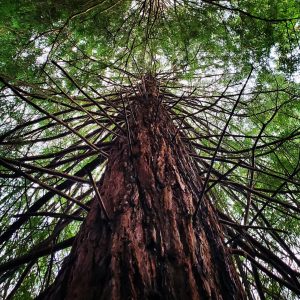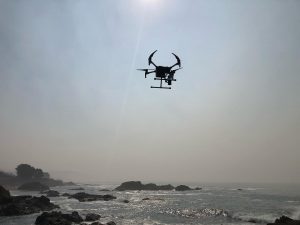FHL 469, FHL 470, and FHL 471 | Autumn 2022
Autumn Marine Studies 2022
Autumn Marine Studies Program (AMS)
For the AMS Program, students participate in the following three required courses, plus optional Marine Sciences Seminar, for a total of 16 or 17 credits:
- Ecology and Human Interactions in the Salish Sea (FHL 469, 5 credits)
- Comparative Anatomy and Physiology of Marine Organisms (FHL 471, 5 credits)
- Research in Marine Biology (FHL 470, 6-credit Research Experience)
- (optional) Marine Sciences Seminar (FHL 490, 1 credit)
Prerequisites: This is an upper-level program and it is assumed that all students have a solid background in introductory biology (e.g. either FISH 270/OCEAN 270/MARBIO 270 or a minimum grade of 3.4 in either BIOL 180, B BIO 180, or T BIOL 120). Successful completion of Foundations in Ecology (Biol 356) and Marine Biology (Biol 250) is recommended.
FHL 469 – Ecology and Human Interactions in the Salish Sea
Instructor: Eliza Heery
This course offers a deep dive into inner workings and complex interrelationships of marine social-ecological systems in the Salish Sea. We will use the Salish Sea as a case study and laboratory in which to gain deeper understanding of the intricate connections between social and ecological processes in the marine environment. Our exploration will emphasize both key scientific discoveries from recent decades and traditional ecological knowledge of the marine realm developed over millennia by Coast Salish Peoples and other indigenous groups. In keeping with the region’s strong tradition of naturalism, we will use field observation, along with direct exchange with scientists, practitioners, and tribal citizens, to strengthen our understanding and sense of place in Salish Sea ecosystems.


FHL 471 – Comparative Anatomy and Physiology of Marine Organisms
Instructor: Adam Summers
In this course, you will learn about the challenges and opportunities presented by the marine environment, with a focus on the relationship between organismal form and physiological function in marine animals (invertebrates as well as vertebrates) and plants. You will get hands-on experience testing anatomical and physiological phenomena you hear about in lecture, with labs covering numerous techniques including physiology experiments, testing of biomechanical properties, and CT scanning.
No textbook required.

FHL 470: Research in Marine Biology: Applying Marine Technologies to Studies of the Coastal Environment
Instructor: Corey Garza
Research in Marine Biology will enable students to engage in a practical research experience in close collaboration with supervisors.
Students will learn to conduct original research in marine biology and ecology in the context of using marine technologies such as drones, ROVs and GIS. We’ll use local examples to illustrate hypothesis testing, study design, analysis and interpretation of data, and reporting. Research will be conducted in a computer laboratory and field settings. Practical aspects of the course will be supported by regular discussions of readings from scholarly journals, including those that focus on the use of marine technologies in studies of the coastal environment.
No textbook is required for this course. UW students earn “W’ credit. UW students taking this course are eligible to obtain Mary Gates Endowment scholarships. Check our financial aid page to learn more.

